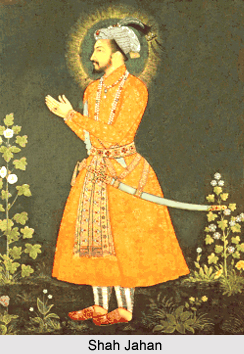 The Mughal Dynasty earned a prominent position for the growth and expansion of Unani medicine. The well renowned and distinguished physicians patronised by the Mughal rulers contributed intensely towards the development of medicine. Shah Jahan, the fifth monarch of the Mughal Empire, took a keen interest about the medical facilities rendered to the common man. During his rule hospitals and dispensaries could be seen throughout the length and breadth of the country. The ruler had established a hospital, on the northern corner of the famous Jama Masjid of Delhi. Noteworthy physicians were posted in different departments to deliver medical services to the common masses. The medicines were distributed free among the patients without any class or religious distinction.
The Mughal Dynasty earned a prominent position for the growth and expansion of Unani medicine. The well renowned and distinguished physicians patronised by the Mughal rulers contributed intensely towards the development of medicine. Shah Jahan, the fifth monarch of the Mughal Empire, took a keen interest about the medical facilities rendered to the common man. During his rule hospitals and dispensaries could be seen throughout the length and breadth of the country. The ruler had established a hospital, on the northern corner of the famous Jama Masjid of Delhi. Noteworthy physicians were posted in different departments to deliver medical services to the common masses. The medicines were distributed free among the patients without any class or religious distinction.
Hakim Muhammad Amin Gilani
Amin Gilani was a native of Lahijan, a district of Gilan. He travelled to Tabriz in pursuit of learning medicine where he studied under the famous Hakim Jibrail and Hakim Muhammad Baqar. He also practised medicine in Tabriz for some time. Once he went on a tour to Southern Europe. During that span Tabriz was annexed by Shah Abbas Safawi. Disappointed and dejected the Hakim went back to Gilan to visit his relatives. He next arrived in India and entered the court of Abdur Rahim Khan-i Khanan which was reputed as the Maktab-i Hoshmandan or the School of Intelligentsia.
As per historical records Hakim AH Gilani, the famous physician of the court of Akbar met Amin Gilani was on his way to Burhampore. The former persuaded him to join the royal court but the Hakim rejecting his proposal entered the court of Abdur Rahim Khan-i Khanan.
Hakim Nizam al-Din Ahmad Gilani
Hakim Nizam al-Din Ahmad Gilani was born in Gilan in 1586 A.D. to Abdullah al-Sadidi al-Shirazi. He studied medicine and other sciences with Mir Muhammad Baqar Damad and the famous theologian Shaykh Baha al-Din Muhammad Amuli. Upon his arrival in India the Hakim joined the court of Shah Jahan and entered the service of Mahabat` Khan, the then supreme commander of imperial forces. Gifted with a high acumen, the Hakim penned down his thoughts on an array of subjects such as, philosophy, logic, poetry, literature, natural sciences, religion and medicine. His writings were compiled in two books Shyra-i Danish and Auraq-i-Danish wa Binish or Majmua-i Hakim al-Mulk. He wrote both these books in Persian and Arabic. Besides being a prolific writer he also possessed the skills of an architect and town-planner, having built a locality called Hakim pat. The Hakim died in Golcunda in 1649 A.D.
Hakim Dawud Taqarrub Khan
Hakim Dawud Taqarrub Khan, the son of Hakim Inayatullah, learnt medicine under Fakhr al-Din Shirazi (Mirza Muhammad), father of Hakim Sadra and personal physician of Shah Abbas Safawi. In 1644 he came to India and entered the court of Shah Jahan. His extraordinary skills in medicine earned him love and respect from the king.
Hakim Masih al-Mulk Shirazi
Hakim Masih al-Mulk Shirazi, a famous oculist and a surgeon studied medicine under Hakim Najm al-Din Abdullah bin Sharf Al-Din Hassan. He came to India from Deccan to the court of Shah Jahan. Later he migrated to Gujarat with Prince Murad. Hakim Ain-ul-Mulk Shirazi had served as the personal physician to Prince Dara Shikoh, the eldest son of Shah Jahan. The Hakim has authored the famous Alfaz-ul-Adwiya (The terminology of Drugs), for Shah Jahan in 1628-29. It is the only known Persian work on general therapeutics translated into English. Another work worth mentioning is the Tibb-e-Dara Shikohi. An essential feature of the book is that the author after stating the various causes and symptoms of each disease has added his personal experiences and views. The physician died in Malwa.
Hakim Musammat Sati Al-Nisa
Hakim Musammat Sati Al-Nisa was a lady physician in the court of Shah Jahan. A native of Amul, a city in the province of Mazandaran of Iran, she arrived in India after the death of her husband. Her efficiency and skills soon promoted her to the office of "Seal-Keeper". Queen Mumtaz Mahal impressed with her managerial ability appointed her as her secretary. The sudden death of her brother Talib Amuli and niece caused her a deep set back. Unable to bear the pain she died in 1646.
Hakim Hadhiq
Hakim Hadhiq, another notable physician in the court of Shah Jahan, was appointed as an ambassador of the Mughal Court. He was sent to Turan by the monarch. Later after his return from Turan, he was appointed to the high office of the "Spokesman of the Court", a position which was given to only worthy people, highly eloquent by nature and well conscious about the temperament of the Emperor. He continued receiving promotions until he became an officer of higher rank. It is thought that he passed away in 1658 A. D.




